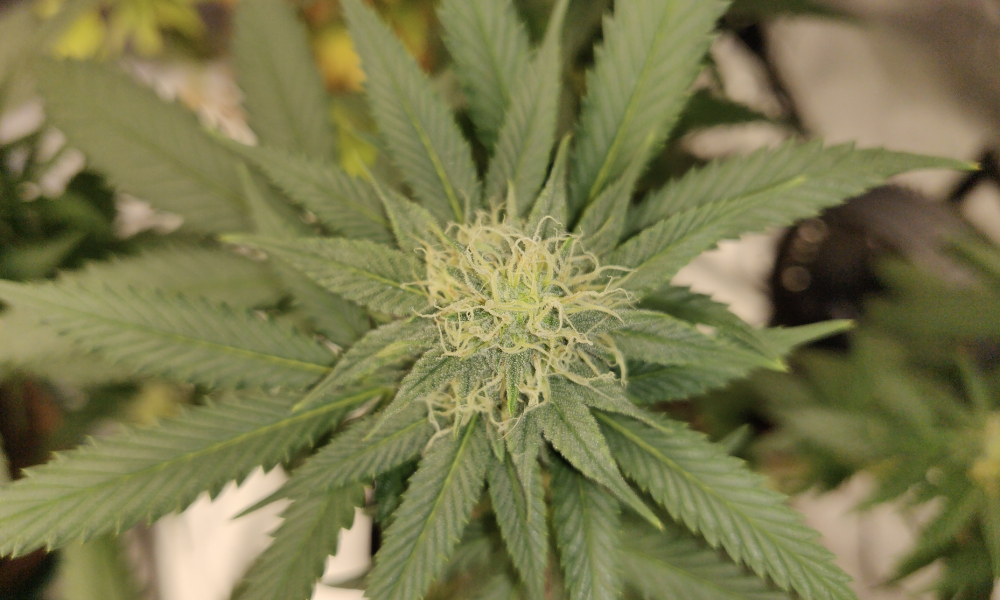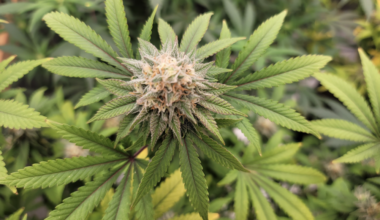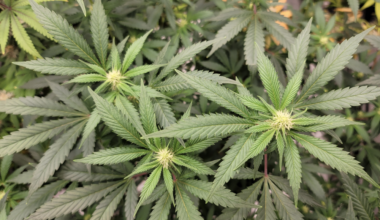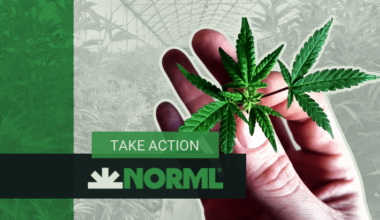A proposed ballot measure to legalize psilocybin in California would save the state millions in enforcement costs and also generate state and local tax revenue, the nonpartisan Legislative Analyst’s Office (LAO) recently concluded.
However, the officials also tempered expectations by pointing out that setting up the regulatory scheme for a legal psilocybin market could initially cost millions. But that could “eventually be partially or fully offset by fee revenue.”
Most of the LAO report, which was published on Wednesday, outlines the main provisions of Decriminalize California’s psychedelics reform measure, which activists hope to place before voters on the November 2022 ballot.
It would be a historic policy change, making California the first in the nation to broadly legalize psilocybin mushrooms for medical and recreational purposes. Oregon voters approved a first-of-its-kind initiative last year to legalize the entheogen for therapeutic use alone.
Decriminalize California’s measure—titled the California Psilocybin Initiative—would legalize the “personal, medical, therapeutic, religious, spiritual, and dietary use of Psilocybin Mushrooms” for adults 21 and older. Further, the initiative would allow for the cultivation, retail sale, social sharing and on-site consumption of the psychedelic.
LAO said the measure “would reduce ongoing costs to the state and local governments by reducing the number of people convicted of psilocybin offenses incarcerated in state prison and county jail, as well as the number placed under community supervision (such as county probation).”
“In addition, the measure would result in a reduction in state and local costs for the enforcement of psilocybin-related offenses and the handling of related criminal cases in the state court system,” it said. “In total, the reduction in costs would likely not exceed a few million dollars annually.”
The office also pointed out that any money saved in enforcing the current criminalization of mushrooms “would likely be redirected to other law enforcement, corrections, and court activities.”
Initiative Analysis: Psilocybin legalization. https://t.co/gCFpOSDhNu
— Legislative Analyst (@LAO_CA) September 1, 2021
LAO further said that the costs of implementation depend on at least three factors: “(1) the specific regulatory structure that the state ultimately implements pursuant to the measure, (2) the extent to which the federal government exercises its discretion to enforce federal prohibitions on psilocybin-related activities, and (3) how people and businesses respond to these two factors.”
“Accordingly, costs could range from minimal to tens of millions of dollars annually. These regulatory costs could eventually be partially or fully offset by fee revenue,” the analysis says. “To the extent that fee revenues are not sufficient to fully support such costs, some of the costs could require support from other fund sources (such as the state General Fund).”
Finally, with respect to the fiscal impact analysis, LAO said creating a regulated system of psilocybin sales could lead people to abandon the illicit market and make it so “state and local governments would receive additional revenues related to the sale of psilocybin.”
“The amount of sales tax revenue collected would depend on the portion of sales that are not for medical, therapeutic, religious, or spiritual purposes, which would be exempt from sales tax under the measure,” it said. “In addition, the measure could result in an increase in other taxable economic activity in the state, as people currently engaged in psilocybin-related activities (such as selling psilocybin) illegally could begin doing so legally under state law and pay personal income taxes.”
“We estimate that these potential increases in tax revenues likely would not exceed a few million dollars annually,” LAO said. “However, this revenue could be greatly reduced to the extent that the federal government exercises its discretion to enforce federal prohibitions on psilocybin-related activities.”
Activists filed the petition with state officials in July. That initiated a 30-day public comment period that lasted until August 11. The measure is now under review by the attorney general’s office, which will assign a title and summary, after which point the group will need to collect 623,212 valid signatures from registered voters within 180 days.
If approved in November 2022, the would be no limits on personal possession—a policy that has stirred controversy in the state legislature over separate legislation to legalize possession of a wide range of psychedelics that passed the Senate but has been placed on hold until next year after clearing two Assembly committees.
While this proposal goes further than the Oregon psilocybin measure, it does still have a specific medical component.
Healthcare professionals “may recommend Psilocybin or Psilocybin Mushrooms for use in minors and adults under the age of 21, for the treatment of specific and appropriate indications,” it says.
The California Department of Food and Agriculture would be responsible for overseeing the implementation of the program overall. Meanwhile the state Department of Consumer Affairs and the Health and Human Services Agency would be required to “adopt and implement the qualification requirements and protocols for Psilocybin Mushroom-assisted therapy created by an independent professional certifying body. ”
Activists made a concerted effort in the measure to ensure the psilocybin products are generally treated like other legal commodities. For example, the products would not be subject to any licensing requirements, fees or taxes that “exceed the amount charged or assessed for comparable non-Psilocybin Mushroom related businesses.”
Psilocybin that’s sold for “medical, therapeutic, religious or spiritual purposes” wouldn’t be subject to any sales or excise tax at all. Those that are marketed as dietary supplements would be taxed “at the local sales tax rate at the point of sale.”
“Psilocybin Mushrooms and Psilocybin Mushroom Businesses shall be regulated as closely as practicable to non-psychoactive agriculturally produced mushrooms” except for specific labelling requirements, the measure says. The labels must include a universal symbol and a warning statement advising consumers to keep them out of reach of children and advising about impairment. Packaging must also explain the content of product, including milligrams of active ingredients per package and per serving.
Researchers, healthcare professionals and therapists would have specific protections related to psilocybin that are carved into the initiative. The psychedelic also couldn’t be used as the sole basis to revoke parental rights.
“Starting January 1, 2023, any Psilocybin Mushroom Business operating on land that is zoned for commercial agricultural production and approved by the COPA for food production can begin the cultivation, manufacturing, and wholesale distribution of Psilocybin Mushrooms,” the measure states. “Starting April 19, 2023, any business that is incorporated in California and possesses a California Seller’s Permit can begin retail sales.”
Local jurisdictions would be able to ban or limit psilocybin businesses from operating in their area if voters approve the restriction via citizen initiative or a petition submitted by a governing body.
Except for safety-sensitive positions “no person shall refuse to provide services or benefits or increase the charge for services or benefits, based on the lawful use, cultivation, possession, storage, or sales of Psilocybin Mushrooms,” it says.
Decriminalize California attempted to get a similar measure on the November 2020 ballot, but they faced signature gathering complications due to the coronavirus pandemic and ultimately abandoned that effort.
House Committee Orders Pentagon To Review Racially Discriminatory Drug Testing Of Military Personnel
Photo courtesy of Wikimedia/Workman.
Medical Disclaimer:
The information provided in these blog posts is intended for general informational and educational purposes only. It is not a substitute for professional medical advice, diagnosis, or treatment. Always seek the advice of your physician or other qualified healthcare provider with any questions you may have regarding a medical condition. The use of any information provided in these blog posts is solely at your own risk. The authors and the website do not recommend or endorse any specific products, treatments, or procedures mentioned. Reliance on any information in these blog posts is solely at your own discretion.






